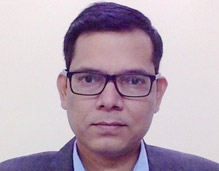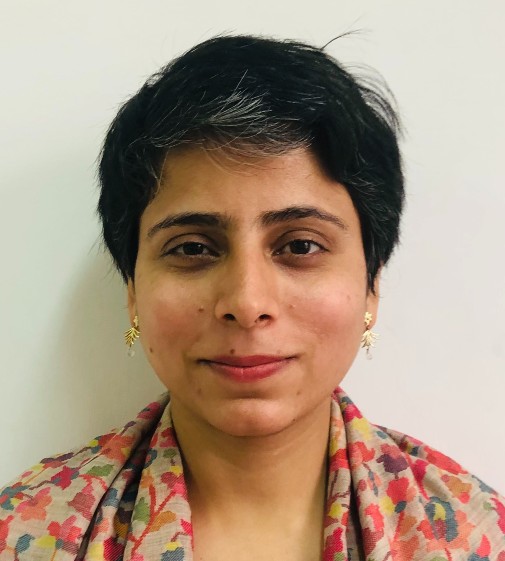Israel–China Ties at 25: The Limited Partnership
Israel–China bilateral ties have witnessed significant growth since the establishment of full diplomatic relations in January, 1992. Both countries are currently investing their energies in realising the full potential of their on-going partnership in the innovation economy. Growing tourist linkages are another facet of the burgeoning relationship.
India–Israel Defence Trade: Issues and Challenges
To achieve strategically critical self-reliance in defence production, there needs to be a greater focus on co-development, co-production projects with important partners like Israel, with an essential emphasis on exports to third countries. For the full realisation of the potential of the India–Israel defence partnership, India on its part needs to strengthen elements of its procurement processes—including the proper implementation of laid down policies.
Assessing US Influence over India–Israel Relations: A Difficult Equation to Balance?
As India’s Israel policy evolved over time, the US involvement in this bilateral relationship has been constant, albeit neither consistent nor direct. Breaking with traditional state-centric approaches, this article focuses on the key role played in shaping the nature of India–Israel ties by non-state and sub-state actors such as specific political personalities, for example Congressmen Emmanuel Celler in the 1940s and Stephen Solarz in the 1980s, as well as of pro-Israel interest groups based in the US, like the Anti-Defamation League (ADL) and the American Jewish Committee (AJC).
Israel and India: Looking Back and Ahead
The article begins by reviewing the Zionist attempts to turn India into a friend. The Zionist movement viewed India as important almost from its formation. Attitudes shaping behaviour prior to the formation of both the states are assessed, as is the icy relationship that prevailed between the two states prior to January 1992. The factors that brought about the change in the relationship to ambassadorial status are analysed, along with the two countries’ burgeoning strategic partnership. Finally, a few thoughts are offered concerning the future of the relationship.
Redefining ‘Strategic’ Cooperation
A quarter century after normalisation of relations, India and Israel have shown considerable maturity in handling bilateral relations and dexterity in managing their occasional differing worldviews. Relations have weathered political changes within India as well as periodic upheavals in West Asia and the stalemate in the Israeli-Palestinian negotiations. Military-security cooperation played a pivotal role in carrying forward relations even when political contacts were minimal, as was the case during the decade-long United Progressive Alliance (UPA) rule.
India–Israel: The View from West Asia
The view from West Asia of India–Israel ties has been interlinked not only with the region’s negative perception of Israel but also with Israel’s evolving position in the West Asian geo-political framework. The growing economic and political power of India in the last two decades and its deepening economic ties with countries in West Asia, however, have brought new factors into play. This perspective, along with the promise of the positive role India can play in West Asian affairs, now colours the Arab appreciation of India–Israel ties as well.
India–Israel Defence Engagement: A Naval Perspective
P. V. Narasimha Rao took over as the ninth Prime Minister of India on June 21, 1991. Rao, a reluctant prime minister, presided over a period that witnessed the most defining events in modern history, both within India and across the world. He charted an unprecedented course for the Indian economy, bringing the country back from the edge of bankruptcy to a period of sustained economic growth that continues even today. The Soviet flag was lowered forever on Christmas day of 1991, bringing the Cold War to an anti-climactic end.
India–Israel Defence Engagement: Land Forces’ Cooperation
The Israeli military has been tested through the entire range of conflict from the conventional to the asymmetric since its inception in May 1948 to the present day. In the process, it has become one of the most powerful military forces in West Asia, with a reputation to match. Not many are aware that Indian Jews, notably the Bene Israelis, have served with distinction under Indian chieftains as well as the East India Company a few hundred years ago.
A Perspective on India–Israel Defence and Security Ties
India’s defence and security ties with West Asia has not been a recent phenomena but dates back to more than a century. Indian cavalry soldiers scripted a brave saga of courage and sacrifice in what perhaps may be described as the last cavalry charge in history. This unique cavalry action on September 23, 1918 comprising the Jodhpur, Mysore and Hyderabad Lancers (as part of the 15th Imperial Service Cavalry Brigade) was tasked with capturing the port city of Haifa in present day Israel.
India–Israel: Retrospective and Prospective
Shimon Peres’ (then Foreign Minister of Israel) meeting with Eduardo Faleiro (then Indian Minister of State for External Affairs) on the sidelines of the United Nations General Assembly (UNGA) in New York in September 1992 was among the first ministerial-level contacts between India and Israel after the establishment of diplomatic relations in January of that year. Peres, whom I was to meet many times in the ensuing years in my various capacities, left a deep impression on me.









